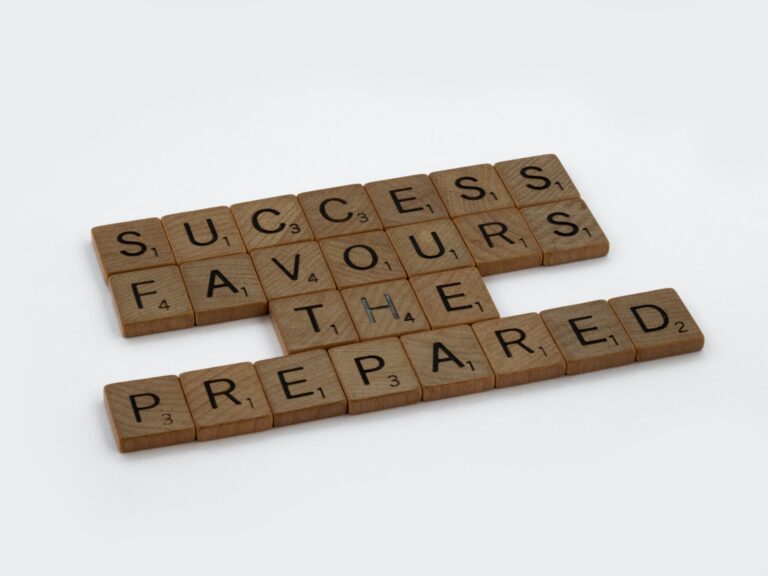Thriving in the Widening World: The Importance of Continuous Learning for Leaders
The Hunger for Knowledge and Experience: A Key Trait of Effective Leaders
Leadership is a complex and multi-faceted concept that has been studied and explored for centuries. While there are many different theories and approaches to understanding leadership, one thing that sets leaders apart from others is their constant appetite for knowledge and experience. Leaders are inherently curious individuals who are always seeking to learn and grow, both personally and professionally. This desire to continuously improve and expand their understanding of the world around them is what allows them to navigate the ever-changing landscape of leadership challenges.
Leaders who possess a thirst for knowledge and experience are often driven by a deep sense of intellectual curiosity. They are not content to simply accept the status quo or rely on past experiences to guide their decision-making. Instead, they actively seek out new information, ideas, and perspectives in order to broaden their understanding of the world and the people in it. This hunger for knowledge can be seen in the way that leaders approach their work, constantly asking questions, challenging assumptions, and seeking out new opportunities for growth and learning.
Another key characteristic of leaders who are constantly seeking knowledge and experience is their sense of intellectual humility. They recognize that they don’t have all the answers and that there is always room for improvement. Rather than being defensive or closed-minded, they approach new ideas and information with an open and curious mindset. They are willing to admit when they don’t know something and are eager to learn from others who have different perspectives or expertise.
The benefits of being a lifelong learner are numerous and far-reaching. For leaders, a commitment to ongoing learning and growth can help them stay ahead of the curve in a rapidly changing business landscape. It can also help them build stronger relationships with their team members, clients, and stakeholders by demonstrating a willingness to listen, learn, and adapt.
In order to be effective in today’s fast-paced and constantly changing world, leaders must be able to adapt and evolve as their environment changes. This requires a willingness to embrace new ideas, take risks, and learn from both successes and failures. The ability to learn and grow is not just a nice-to-have skill for leaders, it’s an essential part of the job.
In the following sections, we will explore the concept of constant learning in more detail, looking at the widening world of leaders, the means of understanding for leaders, and strategies for leaders to continuously learn and grow. By the end of this article, you will have a deeper understanding of the importance of knowledge and experience in leadership, and be equipped with practical tips and strategies for developing your own leadership skills through ongoing learning and growth.
The Constant Appetite for Knowledge and Experience
Leaders differ from non-leaders in their constant appetite for knowledge and experience. This appetite is driven by a sense of curiosity and a desire to understand the world around them in greater depth. Leaders who possess this quality are not content with the status quo and are always looking for ways to improve themselves and their organizations.
Curiosity is a fundamental characteristic of effective leaders. They approach problems and challenges with an open mind, asking questions and seeking out information that can help them make better decisions. They are not satisfied with surface-level knowledge or assumptions, but instead, they dig deeper to understand the underlying causes and motivations behind a situation.
Another essential quality that sets leaders apart is their willingness to take risks and try new things. This is closely tied to their desire for learning and growth. Leaders who are not afraid to step outside of their comfort zones and experiment with new ideas and approaches are more likely to discover innovative solutions and drive positive change.
Leaders who possess a constant appetite for knowledge and experience also recognize that learning is an ongoing process. They understand that there is always room for improvement and that even the most experienced and knowledgeable leaders can benefit from new perspectives and insights. This humility allows them to remain open to feedback and constructive criticism, and to continually strive for self-improvement.
The benefits of being a lifelong learner are many. For leaders, a commitment to ongoing learning and growth can help them stay on top of industry trends, build stronger relationships with their team members, and inspire innovation and creativity. It can also help them develop a more strategic and long-term perspective, allowing them to make more informed decisions that have a greater impact on their organizations and the world around them.
In order to cultivate a constant appetite for knowledge and experience, leaders must actively seek out opportunities for learning and growth. This can include attending conferences, reading industry publications, and participating in training and development programs. They can also benefit from seeking out mentorship and coaching from more experienced leaders who can provide guidance and support as they navigate the challenges of leadership.
The constant appetite for knowledge and experience is a fundamental quality of effective leaders. It is this thirst for learning and growth that allows them to adapt to changing circumstances, make better decisions, and inspire their teams to achieve greater success. By embracing a lifelong learning mindset, leaders can cultivate the skills and insights needed to navigate even the most complex and challenging leadership situations with confidence and effectiveness.
The Widening World of Leaders
In today’s globalized and interconnected world, the challenges of leadership have become increasingly complex and multifaceted. Leaders must navigate an ever-changing landscape of economic, political, and social forces, and must be able to adapt quickly and effectively to new challenges as they arise.
One of the key drivers of this complexity is globalization. As businesses and economies become more interconnected, leaders must be able to navigate cultural differences and work effectively with teams and stakeholders from diverse backgrounds. This requires a deep understanding of different cultures and communication styles, as well as the ability to build relationships based on mutual trust and respect.
Technological advancements have also contributed to the widening world of leaders. The rise of the internet and social media has made it easier than ever before to connect with people and organizations around the world. This has created new opportunities for collaboration and innovation, but has also increased the speed and intensity of competition in many industries.
The widening world of leaders also presents new challenges related to sustainability and social responsibility. Leaders must be able to balance the needs of their organizations with the wider interests of society and the environment. This requires a deep understanding of complex issues such as climate change, human rights, and inequality, as well as the ability to develop strategies that promote long-term sustainability and social impact.
In order to navigate this widening world, leaders must be adaptable and flexible. They must be able to recognize and respond to new challenges as they arise, and be willing to experiment with new approaches and ideas. They must also be able to build diverse and inclusive teams that can work effectively in a global context.
Emotional intelligence is another essential quality for leaders in the widening world. This involves the ability to understand and manage one’s own emotions, as well as the emotions of others. Leaders who are emotionally intelligent are better able to build strong relationships, communicate effectively, and manage conflict in a constructive way.
The widening world of leaders presents both new challenges and opportunities for growth and development. By embracing a global mindset, staying up-to-date with the latest trends and technologies, and developing strong emotional intelligence and communication skills, leaders can position themselves for success in an ever-changing and complex world.
The Means of Understanding for Leaders
In order to navigate the widening world of leadership, leaders must have a deep understanding of the people and organizations they work with, as well as the wider economic, political, and social forces that shape their industry. This requires a range of skills and competencies, including emotional intelligence, empathy, and the ability to take diverse perspectives into account.
Emotional intelligence is a key means of understanding for leaders. This involves the ability to recognize and manage one’s own emotions, as well as the emotions of others. Leaders who are emotionally intelligent are better able to build strong relationships, communicate effectively, and manage conflict in a constructive way. They are also more likely to be seen as trustworthy and approachable, which can help them build a loyal and engaged team.
Empathy is another important means of understanding for leaders. This involves the ability to see things from another person’s perspective and understand their emotions and motivations. Leaders who are empathetic are better able to build rapport with their team members and stakeholders, and are more likely to be able to find win-win solutions to complex problems.
Diverse perspectives are also essential for leaders who want to understand the complex challenges of the widening world. This means seeking out input and feedback from people with different backgrounds, experiences, and viewpoints. Leaders who are able to build diverse teams and create an inclusive culture are better able to generate innovative solutions and respond to changing circumstances.
Finally, learning and development is an ongoing means of understanding for leaders. In order to stay ahead of the curve in a rapidly changing world, leaders must be committed to continuous learning and growth. This means seeking out opportunities for training and development, attending conferences and workshops, and engaging with thought leaders in their field. By constantly expanding their knowledge and skills, leaders can position themselves for success in the long term.
In order to cultivate these means of understanding, leaders must be willing to be vulnerable and open to feedback. This requires a willingness to listen, learn, and grow, even when it means admitting mistakes or gaps in knowledge. It also requires a willingness to seek out diverse perspectives and engage with people who have different backgrounds and experiences.
Overall, the means of understanding for leaders are essential for success in a widening world. By cultivating emotional intelligence, empathy, diverse perspectives, and a commitment to learning and development, leaders can build strong relationships, make better decisions, and position themselves for success in an ever-changing world.
Strategies for Leaders to Continuously Learn and Grow
Continuous learning and growth is essential for leaders who want to stay ahead of the curve in a rapidly changing world. By seeking out new knowledge and perspectives, leaders can develop the skills and insights needed to navigate complex challenges and drive positive change. In this section, we will explore some practical strategies for leaders who want to continuously learn and grow.
-
Reflection and self-assessment: One of the most important strategies for continuous learning is self-reflection and assessment. This involves taking time to reflect on one’s own strengths, weaknesses, and areas for improvement. Leaders who are able to honestly assess their own performance and seek out feedback from others are better able to identify areas for growth and development.
-
Mentorship and coaching: Another effective strategy for continuous learning is seeking out mentorship and coaching from more experienced leaders. Mentors can provide guidance and support as leaders navigate the challenges of leadership, and can help them identify opportunities for growth and development. Coaching can also be a valuable tool for leaders who want to develop specific skills or address specific challenges.
-
Seeking feedback: Feedback is essential for continuous learning and growth. Leaders who are able to seek out feedback from their team members, stakeholders, and peers are better able to identify areas for improvement and make more informed decisions. It is important for leaders to create a culture of openness and transparency that encourages constructive feedback.
-
Participating in training and development programs: Another effective strategy for continuous learning is participating in training and development programs. These programs can provide leaders with new knowledge, skills, and perspectives, as well as opportunities to network with other leaders and industry experts.
-
Reading and research: Reading and research are essential for continuous learning in any field. Leaders who are able to stay up-to-date with the latest trends and research in their industry are better able to identify emerging challenges and opportunities, and make more informed decisions. Reading can also be a valuable tool for developing creativity and innovation.
-
Experimentation and risk-taking: Finally, leaders who are willing to experiment and take risks are more likely to learn and grow over time. This involves trying new approaches and ideas, even when there is a risk of failure. Leaders who are able to embrace failure as a learning opportunity are more likely to develop innovative solutions and drive positive change.
Continuous learning and growth is essential for leaders who want to navigate the widening world of leadership with confidence and effectiveness. By reflecting on their own performance, seeking out mentorship and coaching, seeking feedback, participating in training and development programs, reading and research, and taking risks and experimenting, leaders can develop the skills and insights needed to thrive in a rapidly changing world.
The Journey of Continuous Learning and Growth: The Path to Effective Leadership
In this article, we have explored the concept of leadership and the importance of continuous learning and growth for effective leadership in the widening world. We have looked at the difference between leaders and non-leaders, the benefits of a constant appetite for knowledge and experience, and the challenges and opportunities of leadership in a globalized and interconnected world. We have also discussed the means of understanding for leaders, including emotional intelligence, empathy, diverse perspectives, and a commitment to learning and development, as well as practical strategies for continuous learning and growth.
Leadership is a complex and multifaceted concept that requires a range of skills and competencies. In order to be effective in a widening world, leaders must be adaptable, flexible, and willing to learn and grow. They must have a deep understanding of the people and organizations they work with, as well as the wider economic, political, and social forces that shape their industry. They must also be able to build diverse and inclusive teams that can work effectively in a global context.
Continuous learning and growth is essential for leaders who want to stay ahead of the curve and drive positive change in their organizations and industries. By reflecting on their own performance, seeking out mentorship and coaching, seeking feedback, participating in training and development programs, reading and research, and taking risks and experimenting, leaders can develop the skills and insights needed to thrive in a rapidly changing world.
In conclusion, effective leadership is a journey of continuous learning and growth. It requires a deep commitment to ongoing development and a willingness to embrace new ideas and perspectives. By cultivating a constant appetite for knowledge and experience, building strong relationships with their team members and stakeholders, and staying up-to-date with the latest trends and technologies, leaders can position themselves for success in the widening world of leadership.







